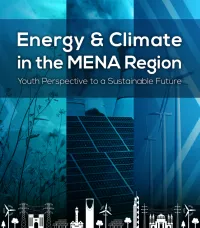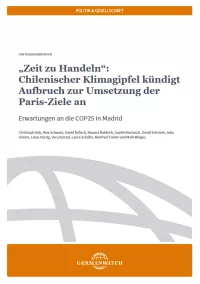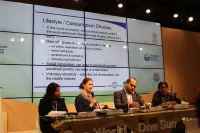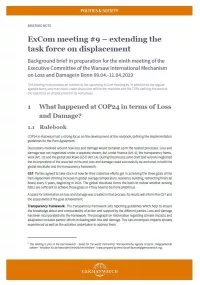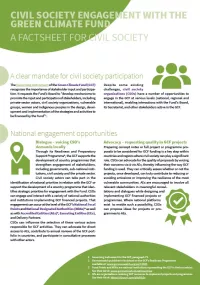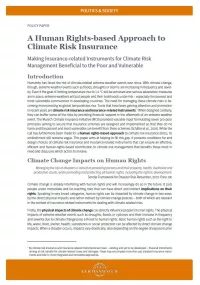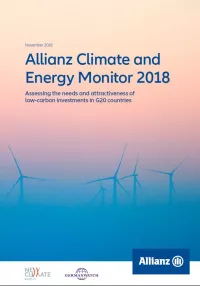Aktuelles zum Thema
Under the motto "Time to act", the 25th Conference of the Parties (COP25) to the United Nations Framework Convention on Climate Change (UNFCCC) will take place from 2 to 13 December 2019 in Madrid, Spain, under Chile's presidency. After all, it is finally time for action in the logic of the UN negotiations. Following the decisions of the Paris Climate Agreement in 2015 and its implementation rules last year, nothing stands in the way of decisive action.
Multi-Actor-Partnerships offer an approach to address complex challenges through cooperation between actors from civil society, politics, the private sector and academia. The short film outlines the relevant framework conditions and criteria for a successful partnership. An example from India illustrates the advantages of this approach.
The short film illustrates how cooperation between actors from civil society, politics, the private sector and academia helps to incorporate different perspectives and backgrounds in solutions to complex challenges. The example of climate risk insurance in Kenya illustrates the implementation of this approach.
The role sustainable lifestyles can play in achieving a paradigm shift to sustainability is acknowledged in both the Sustainable Development Goals and the Paris Agreement of 2015. They can be defined as “responsible living with our total surrounding and ourselves”, thus including aspects like global equity (see previous blogpost). Nevertheless, the vast majority of scientific literature focuses on ecological sustainability.
This briefing note provides an outlook to the upcoming ninth meeting of the Executive Committee (ExCom) of the Warsaw International Mechanism on Loss and Damage (WIM) in Bonn 09.04.-11.04.2019. One main topic under discussion will be the mandate and the Terms of Reference of the Task force on displacement, defining the work in its next phase.
The Green Climate Fund (GCF) recognizes the importance of stakeholder input and participation in the design, development and implementation of its financed strategies and activities to reduce CO₂ emissions and support developing countries that are vulnerable to the effects of climate change. Despite some existing challenges, these stakeholders, including private sector actors, civil society organizations (CSOs), vulnerable groups, women and indigenous peoples, can engage in the GCF at various levels. The factsheet is published under the project “CSOs readiness to the GCF – focus Africa” jointly implemented by Germanwatch and CARE International with support from a consortium of African networks and civil society organizations. The project aims to support broader African civil society engagement in the critical early implementation phase of the GCF.
Tropical cyclones have heavy impacts on an increasing number of countries. In 2017, the hurricane season in the Caribbean Sea was particularly strong and left several islands destroyed. Furthermore there are some developing countries that have difficulties to recover as they are regularly hit by weather catastrophes. Especially poorer countries like Sri Lanka, Nepal or Vietnam are facing great challenges. All in all, in 2017 11.500 people died because of extreme weather events. Economic damages amounted to approximately US$ 375 billion (calculated in purchasing-power parity, PPP). So it was the year with the highest weather-related losses ever recorded.
With climate change extreme weather events such as floods, droughts or storms are increasing in frequency and severity. They put people and their livelihoods under risk – especially the poorest and most vulnerable communities in developing countries. The need for managing these climate risks is becoming more pressing as global temperatures rise. Tools that have been gaining attention and promotion in recent years are climate risk insurance and insurance-related instruments.
Der Allianz Klima- und Energiemonitor vergleicht die G20-Staaten hinsichtlich ihrer Attraktivität für Investitionen in eine emissionsfreie Energie-Infrastruktur. Zudem berechnet er den momentanen und künftigen Investitionsbedarf – davon ausgehend, dass die Klimaziele des Pariser Abkommens, deutlich unter 2 Grad bzw. möglichst 1,5 Grad Erwärmung, eingehalten werden sollen. Der Monitor wurde zum dritten Mal von der Allianz SE in Kooperation mit Germanwatch und dem NewClimate Institute erstellt.

